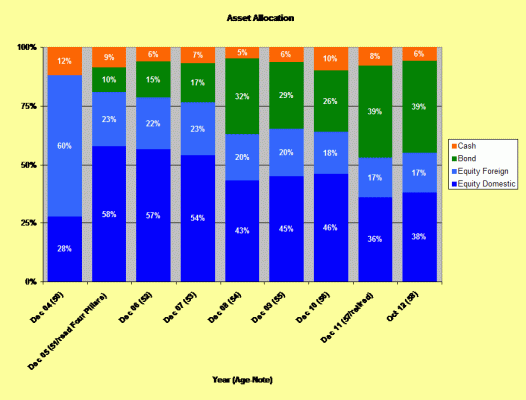Midpack
Give me a museum and I'll fill it. (Picasso) Give me a forum ...
I thought I "converted" about 5-6 years earlier, but my records show I was 100% equities until age 51. I never held bonds/bond funds of any kind until then, though I don't recommend same (youngish & stupid?). My current target is 50/40/10. Nothing earthshaking, some members here are undoubtedly more aggressive, some less. Just sharing FWIW...
Attachments
Last edited:

